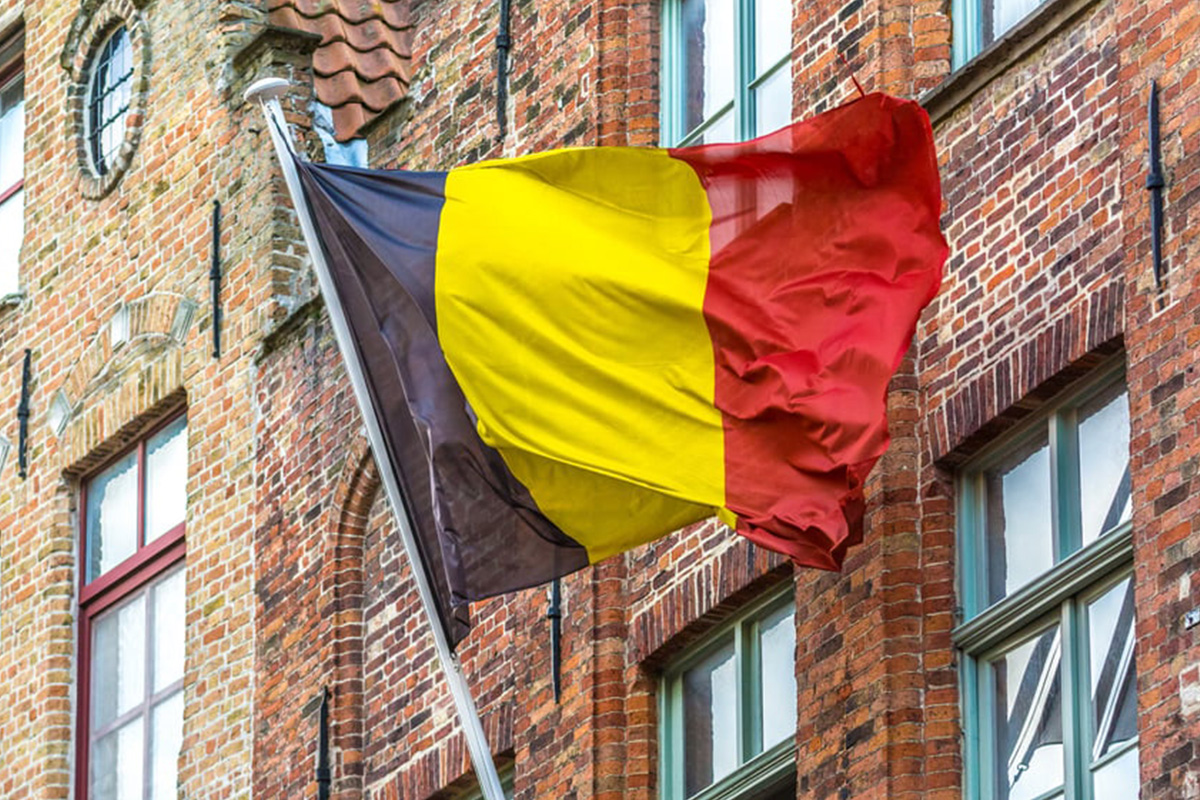

Compliance Updates
Belgium Makes Legal Age to Gamble at 21 from September
Belgium regulators have made new amendments to the gambling laws in the country with the legal gambling age from 18 to 21. This move aims to align the age requirements for sports betting, arcades and bingo with those already in place for land-based casinos. The revised regulations are set to come into effect on September 1, 2024, and have been outlined in a press release by the Gaming Commission, as published in the Belgium Official Gazette.
The decision to increase the legal gambling age in Belgium is part of a broader effort to prioritise player safety and well-being. By raising the age limit, the authorities aim to provide a more secure environment for individuals engaging in gambling activities. The new legislation includes several other measures designed to safeguard players and ensure responsible gambling practices:
- Prohibition of Devices “3.3”: The revised regulations include a ban on the use of specific gambling devices, known as “3.3” devices. This prohibition aims to eliminate potential risks associated with these devices and promote safer gambling experiences.
- Ban on Cumulation of Online Licences: The new laws also prohibit the cumulation of online licenses on the same website. This measure seeks to prevent operators from exploiting multiple licenses to maximise their reach and potentially exploit vulnerable players.
- Ban on Gifts/Bonuses/Free Games: Another noteworthy provision is the ban on offering gifts, bonuses, or free games to players. This restriction aims to minimise the potential for excessive gambling and the associated risks it may pose to vulnerable individuals.
- Ban on Advertising Games of Chance: The revised regulations also introduce a ban in principle on advertising games of chance. This change intends to reduce the exposure of individuals to gambling advertisements, particularly targeting vulnerable populations, such as minors and problem gamblers.
- Age Limit of 21 Years and Refund in Case of No Control: To ensure effective age verification and compliance with the new regulations, individuals who fail to provide proof of age will be eligible for refunds. This provision emphasises the importance of age control measures and strengthens the responsibility of operators in verifying the age of their customers.
The raised legal gambling age in Belgium will have implications for both operators and players within the country’s gambling industry. For operators, it means implementing necessary changes to comply with the new regulations and adapt their marketing strategies to adhere to the ban on advertising games of chance. Additionally, operators will need to ensure strict age verification processes to prevent minors from accessing gambling services.
Players, particularly those between the ages of 18 and 21, will be directly affected by the increase in the legal gambling age. Those who were previously eligible to participate in certain gambling activities may now need to wait until they reach the age of 21. However, it is essential for players to understand that this change is intended to protect them from any potential harm associated with underage gambling. Responsible gambling practices and adherence to legal age limits are crucial for maintaining a safe and enjoyable gambling environment.
While the decision to raise the legal gambling age has been made with the best intentions, there are concerns and criticisms regarding certain aspects of the revised regulations. One notable concern is the potential for the new advertising restrictions to inadvertently benefit illegal operators. The Belgium Association of Gaming Operators (BAGO) has expressed opposition to a total ban on gambling advertising, arguing that it could make it more challenging for consumers to differentiate between legal and illegal operators.
Tom De Clercq, Chair of BAGO, emphasises the need for targeted advertising limitations rather than a blanket ban. BAGO advocates for limiting advertising, particularly through traditional media, but warns against the potential negative consequences of a total ban. They believe that a comprehensive approach that combines responsible advertising practices and effective regulation is key to maintaining a healthy and well-regulated gambling industry.
Compliance Updates
Nevada Rep. Dina Titus to Add FAIR BET Act to 2026 Defense Budget

Nevada Rep. Dina Titus is strategically pushing forward her Fair Accounting for Income Realized from Betting Earnings Taxation Act, commonly known as the FAIR BET Act. She intends to attach it to the 2026 National Defense Authorization Act (NDAA), a key piece of legislation that must pass annually. This maneuver, revealed on August 27, is designed to increase the chances that her proposal will be enacted into law.
The FAIR BET Act seeks to reverse a disputed provision introduced under former President Donald Trump’s One Big Beautiful Bill Act. The provision lowered the gambling loss deduction from 100% to 90%, which is set to take effect in January 2026. This change has met significant resistance from both the gaming industry and individual gamblers, who argue that it unfairly taxes money that they never actually won.
Representative Titus, who co-leads the Congressional Gaming Caucus, initially introduced this succinct bill in July. However, it stalled in the House Ways and Means Committee. To overcome this hurdle, she is leveraging a common legislative tactic by attaching the amendment to the NDAA. Around two decades ago, a similar strategy helped pass the Unlawful Internet Gambling Enforcement Act amid a port security bill.
The initiative enjoys strong support from major gaming industry leaders and state officials. Prominent executives from companies such as MGM Resorts, Caesars, and Wynn Resorts have expressed concern to lawmakers about the financial impact this deduction limit could have on both players and casinos. The American Gaming Association has also condemned the recent tax rule, stressing that it unfairly penalizes a legal and regulated industry.
The FAIR BET Act is gaining momentum across party lines. So far, ten members in the House have endorsed it as co-sponsors. In addition, a Republican counterpart titled the WAGER Act was introduced in July by Representative Andy Barr of Kentucky. In the Senate, Nevada Senator Catherine Cortez Masto has proposed a similar measure known as the FULL HOUSE Act.
Supporters emphasize the importance of this amendment for states like Nevada, where gambling significantly contributes to the economy. However, some critics argue that inserting tax policy changes into a defense authorization bill represents an overreach by lawmakers.
The amendment is currently under review by the House Rules Committee, with a vote expected within the next several weeks.
The post Nevada Rep. Dina Titus to Add FAIR BET Act to 2026 Defense Budget appeared first on Gaming and Gambling Industry in the Americas.
Compliance Updates
Romania Blocks 30 Unlicensed Gambling Websites

Romania’s gambling authority, the ONJN, has blacklisted 30 gambling websites after finding they were offering online casino and sports betting without local licences. Internet service providers (ISPs) now have 15 days to cut access, redirecting users to an official ONJN page explaining the block.
The 30 blocked sites range from obscure names to platforms that had been attracting steady traffic. Domains include wazbee.casino, jacktop.com, roostake.com, a string of “nv” branded casinos (nv5.casino through nv93.casino), and several under the ybets label.
Some of these platforms appeared almost overnight and marketed heavily on social media. Others had been active for months, drawing Romanian players with offers that licensed brands simply cannot match under current advertising rules.
The ruling obliges Romanian ISPs to redirect any traffic from the blacklisted domains to a designated ONJN IP address. Players trying to access those sites will instead see a page confirming the operator is not authorised to operate in Romania.
The post Romania Blocks 30 Unlicensed Gambling Websites appeared first on European Gaming Industry News.
Asia
New Indian Law Aims to Curb Online Money Gambling Sector, Prohibits Related Advertising

Following the passage of the Promotion and Regulation of Online Gaming Bill 2025 on August 21, the government of India imposes a complete ban on online money games, alongside the advertisements related to the sector.
Passed by the parliament, any financial transactions related to these platforms would be considered unlawful as stated under the Information Technology Act of 2000. The legislation also aims to establish a national-level regulatory authority that will govern the categorising and registration of online games.
The said authority shall issue guidelines, codes of practice and directions for compliance, with strict punishments induced, leading to imprisonment for up to three years, and a fine to one crore rupees or 114,017 USD.
The advertisement of the said games is also punishable with similar penalties, with imprisonment up to two years and a fine of up to fifty lakh rupees 1140 USD.
While the law prohibited online money gaming such poker, rummy and fantasy sports that offer cash rewards, e-sports are considered and recognised as a legitimate competitive sport in India, and is not included in the total ban, as well as online social games or casual games that are recreational in nature.
This draws that the bill-turned-law, used a “balanced approach” since recognising that the online gaming sector is one of the most dynamic segments in the digital and creative economy, hence, still allowing esports and online social games.
This came after the report of over 45 crore or 45,000,000 people were reportedly affected by online money games and have lost more than Rs. 20,000 crores or 2,280.414 USD, according to Shri Ashwini Vaishnaw, Union Minister for Electronics and Information Technology.
According to the same ministry, the total ban was driven by the following reasons:
• Addiction and Financial Ruin
• Mental Health and Suicide
• Fraud and Money Laundering
• Threat to National Security
• Closing Legal Loopholes
• Encouraging Healthy Alternatives
Meanwhile, the bill also stated that while the online gaming authority governs the registration of online games, the central government still has the authority to frame the rules for the promotion and advertisement of e-sports, online social games and other rules related under the law.
In total, the legislation aims to safeguard vulnerable populations, particularly the middle class and youth by introducing these strict regulations and a greater emphasis on brand responsibility and ethical advertising.
The post New Indian Law Aims to Curb Online Money Gambling Sector, Prohibits Related Advertising appeared first on European Gaming Industry News.
-

 gaming3 years ago
gaming3 years agoODIN by 4Players: Immersive, state-of-the-art in-game audio launches into the next generation of gaming
-
EEG iGaming Directory8 years ago
iSoftBet continues to grow with new release Forest Mania
-
News7 years ago
Softbroke collaborates with Asia Live Tech for the expansion of the service line in the igaming market
-
News7 years ago
Super Bowl LIII: NFL Fans Can Bet on the #1 Sportsbook Review Site Betting-Super-Bowl.com, Providing Free Unbiased and Trusted News, Picks and Predictions
-
iGaming Industry8 years ago
Rick Meitzler appointed to the Indian Gaming Magazine Advisory Board for 2018
-
News7 years ago
REVEALED: Top eSports players set to earn $3.2 million in 2019
-
iGaming Industry8 years ago
French Senator raises Loot Boxes to France’s Gambling Regulator
-
News7 years ago
Exclusive Interview with Miklos Handa (Founder of the email marketing solutions, “MailMike.net”), speaker at Vienna International Gaming Expo 2018










